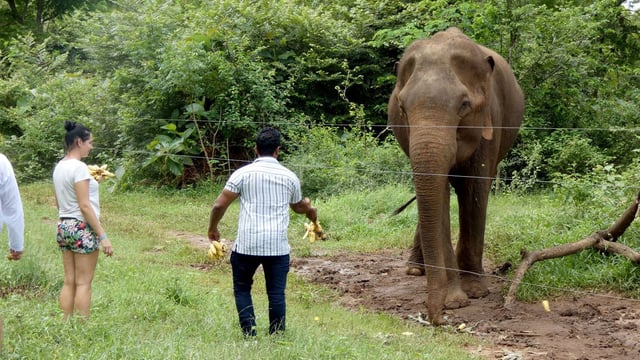Overview
- The peer-reviewed study published in Ecological Solutions and Evidence draws on 18 years of data from Udawalawe National Park in Sri Lanka collected by Shermin de Silva’s team.
- Researchers observed that feeding by visitors triggers persistent begging, fence-breaking and bolder approaches to humans among wild elephants in Sri Lanka and India.
- At least three elephants were killed after breaking park boundaries and crossing roads in Sri Lanka, and four died in India’s Sigur-Hochland after being lured by resorts.
- Analyses of elephant dung revealed life-threatening plastic ingestion from packaged fruits, and experts warn that feeding reduces natural foraging skills and risks disease transmission.
- With Asian elephants listed as “strongly endangered” and numbers estimated at 41,000–52,000 in 2018, the authors urge sustainable tourism measures and rigorous enforcement of feeding prohibitions.
